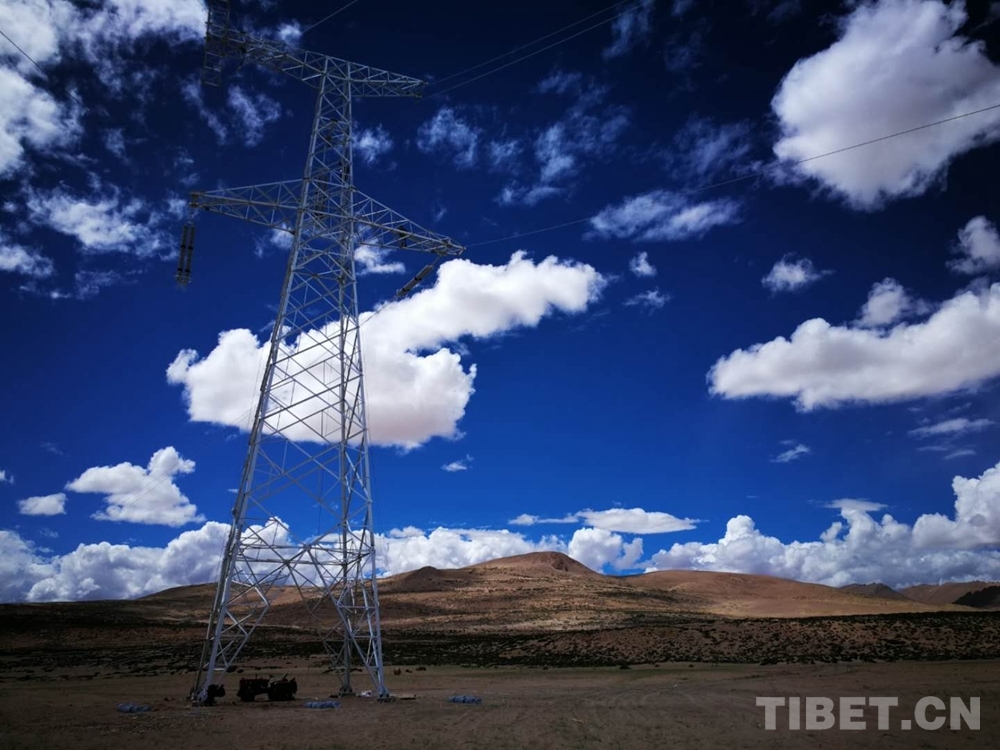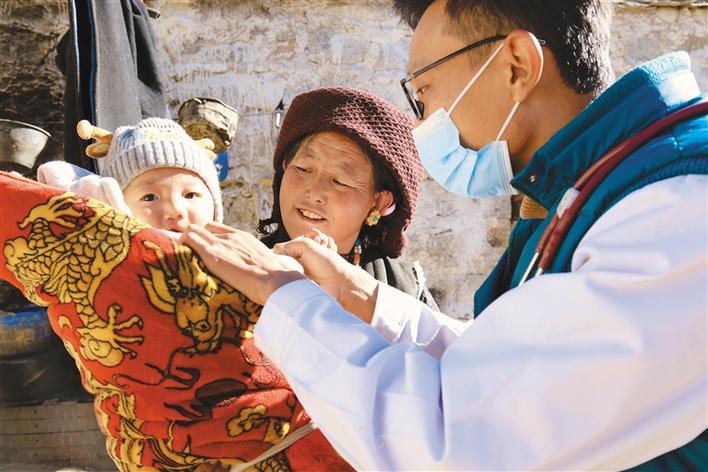How Xi Jinping's economic thought reshapes China
China has seen a phenomenal transformation in its economic landscape since the end of 2012 with the strength, scale and span all recording unprecedented changes.
China's GDP is around 53.858 trillion yuan in 2012, accounting for about 11.5 percent of the global total. Almost a decade later, the country's GDP surpassed 110 trillion yuan in 2021, contributing over 30 percent to world economic growth.
China's economic miracle did not happen by chance. It testifies to the vitality and effectiveness of China's socialist economy under the guidance of Xi Jinping's economic thought.
Xi Jinping Thought on Socialist Economy with Chinese Characteristics for a New Era unveiled at the Central Economic Work Conference in December 2017 is mainly based on the new development philosophy put forward by Xi in 2015 and features innovative, coordinated, green, open and shared development.
When Xi took office as general secretary of the Communist Party of China (CPC) Central Committee in 2012, China's economic strength significantly stood out after more than 30 years of reform and opening up. Yet, challenges, including downward pressure on the economy, wealth disparities and environmental damages, cannot be ignored. A more scientific top-level approach was needed.
In 2015, Xi put forward a new development philosophy featuring innovative, coordinated, green, open and shared development, which set a fundamental guideline for China's economic development as the core of Xi's economic thought.
Two years later, at the 19th CPC National Congress, Xi made an important judgment that the country's economy was transitioning from a phase of rapid growth to a stage of high-quality development.
Since then, high-quality development has been taken as the fundamental requirement for authorities to make economic policies and exercise macroeconomic control.
Xi's economic thought reflects the leadership's growing understanding of the laws of economic and social development and is regarded as a Chinese model of modernization characterized by an innovative, coordinated, green, open and shared development path.
Xi's economic thought comprises a series of principles. One of the principles is to remain committed to a people-centered philosophy of development, in line with which reforms have been advanced in all areas of public concern, including education, healthcare and social security.
A monumental anti-poverty campaign was launched on a scale unseen anywhere in the world. Back in 2012, there were nearly 100 million Chinese living under the poverty line. In February 2021, China declared the elimination of absolute poverty, lifting the final 98.99 million rural poor out of poverty.
In 2021, China's per capita disposable income hit 35,128 yuan, more than double the level in 2010. The country has developed the world's largest social security system and boasts the world's biggest middle-income group.
As for the principle of the relationship between government and market, the thought underlines the need to ensure that the market plays a decisive role in the allocation of resources, with the government better playing its role, and to resolutely remove institutional obstacles to economic development.
In the past decade, the government has further delegated powers, streamlined administration and improved services. As a result, market barriers have been further eliminated, market entities' vitality has been stimulated, and market competition has become fairer.
In addition, under the guidance of Xi's economic thought, China has become more open. In 2013, the first pilot free trade zone was established in Shanghai. Now the number of such zones has reached 21, including the entire island of Hainan. China's negative list for foreign investment has been further shortened.
Global investors have cast more votes of confidence on investing in China. The foreign direct investment into the country hit a record high of 1.15 trillion yuan in 2021. China's foreign trade also reached a new high in 2021, exceeding 6 trillion U.S. dollars for the first time.
The development approach China champions under Xi's economic thought also takes harmony and coordination into account. It stresses synchronized development across regions, optimizing resource allocation, and closing economic disparities, as well as considering shared benefits for humans and nature.
The country made steady progress in promoting new urbanization, with the urbanization rate of permanent residence hitting 64.72 percent in 2021. The figure for 2012 was 52.57 percent.
The integrated development of the Yangtze River Delta, development of the Guangdong-Hong Kong-Macao Greater Bay Area, and coordinated development of the Beijing-Tianjin-Hebei Region are all significant engines powering China's development.
In terms of human-nature harmony, historic achievements were made in China's environmental development. China managed to significantly reduce its number of days with heavy air pollution. The safety of drinking water was guaranteed.
Looking ahead, with the pandemic still weighing on the global economy and new downward pressures challenging the Chinese economy, Xi's economic thought will continue to provide further guidance and theoretical foundation for China's economic policy framework and leave a deeper imprint on China's future economic growth and beyond.
Your Comment
Name E-mail






